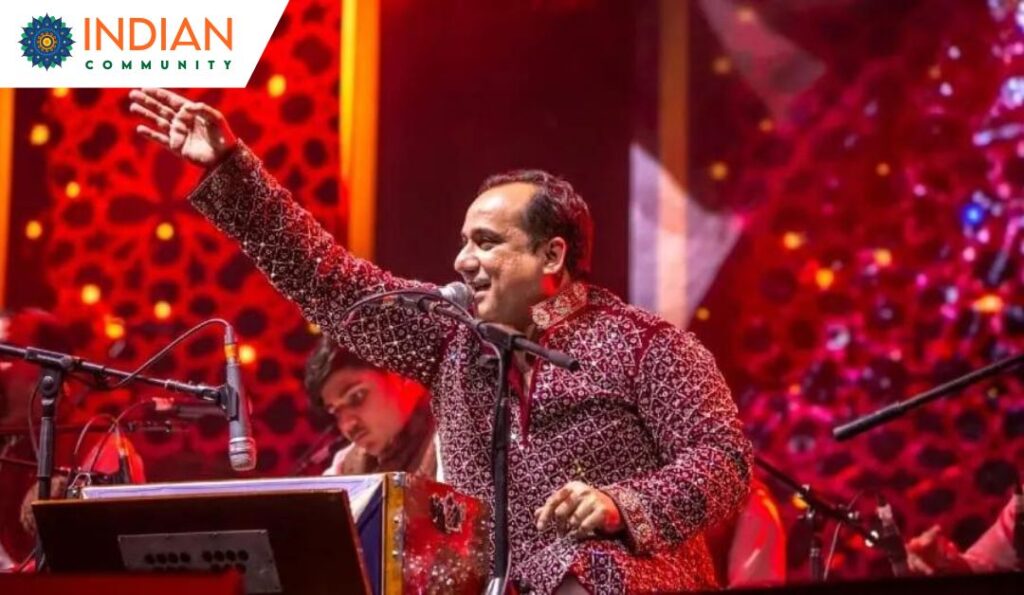Rahat Fateh Ali Khan was born on December 9, 1974, in Faisalabad, Punjab, Pakistan, into a family with a rich musical legacy. His father, Farrukh Fateh Ali Khan, was a renowned musician and vocalist, and his uncle, Ustad Nusrat Fateh Ali Khan, was one of the greatest qawwals (Sufi devotional singers) of all time. Growing up in such an environment, Rahat was immersed in the world of music from an early age.
Musical Training and Early Career
Rahat’s formal musical training began at the tender age of seven under the tutelage of his uncle, Nusrat Fateh Ali Khan. He was trained rigorously in classical music, qawwali, and ghazals, which laid a strong foundation for his future career. By the age of nine, Rahat was already performing alongside his uncle in live concerts.
Rahat’s first significant public performance came at the age of 11, when he performed solo at a concert commemorating the death anniversary of his grandfather, Fateh Ali Khan. This performance marked the beginning of his career as a professional singer.
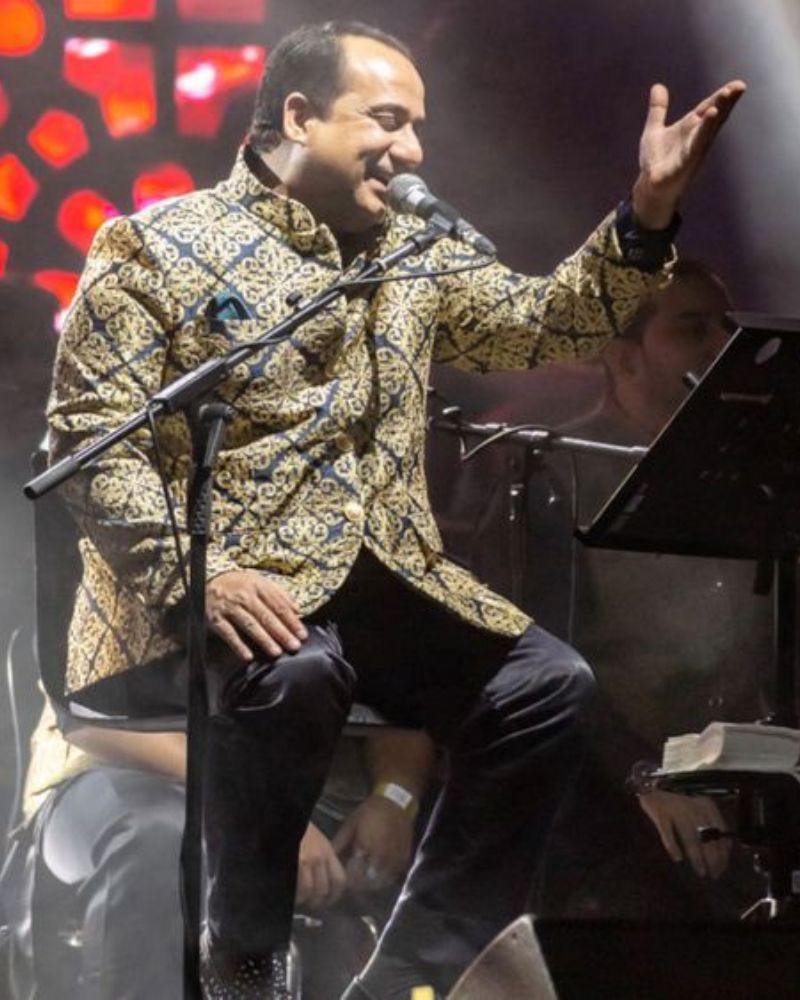
Rise to Fame
Rahat Fateh Ali Khan’s early career was primarily focused on qawwali. He performed extensively with Nusrat Fateh Ali Khan’s qawwali party, both in Pakistan and internationally. His powerful voice and emotive renditions quickly made him a favorite among audiences.
After the passing of Nusrat Fateh Ali Khan in 1997, Rahat took over the mantle of the family tradition. He continued to perform and record qawwalis, keeping the legacy of his uncle alive. During this period, he also began to explore other genres, including ghazals and playback singing for films.
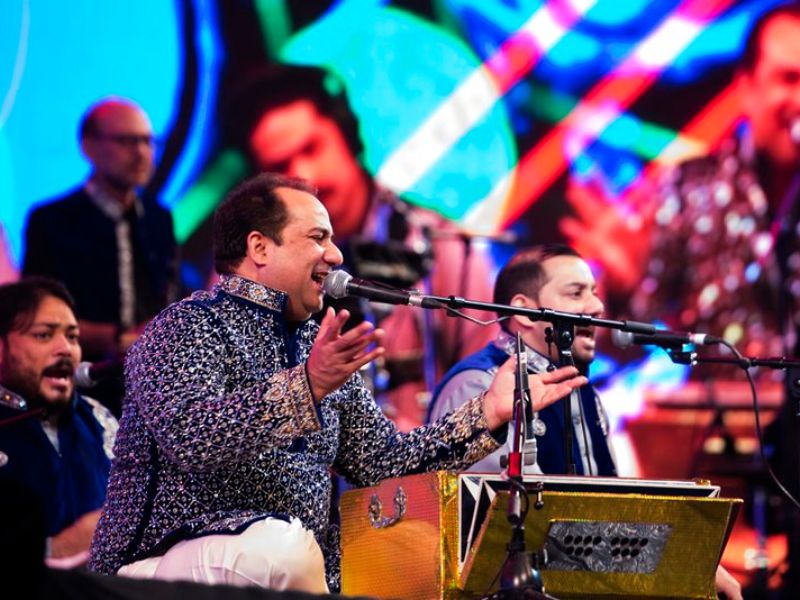
Bollywood Breakthrough
Rahat’s Bollywood journey began in the early 2000s. His breakthrough came with the song “Mann Ki Lagan” from the movie “Paap” (2003), composed by Anu Malik. The song was a massive hit and showcased Rahat’s ability to blend traditional Sufi music with contemporary sounds.
Following this success, Rahat became one of the most sought-after playback singers in Bollywood. He lent his voice to numerous hit songs, including:
- “Jiya Dhadak Dhadak” from “Kalyug” (2005)
- “Bol Na Halke Halke” from “Jhoom Barabar Jhoom” (2007)
- “O Re Piya” from “Aaja Nachle” (2007)
- “Teri Ore” from “Singh is Kinng” (2008)
- “Ajj Din Chadheya” from “Love Aaj Kal” (2009)
- “Tere Mast Mast Do Nain” from “Dabangg” (2010)
His unique voice and ability to convey deep emotions through his singing made him a favorite among music directors and audiences alike.
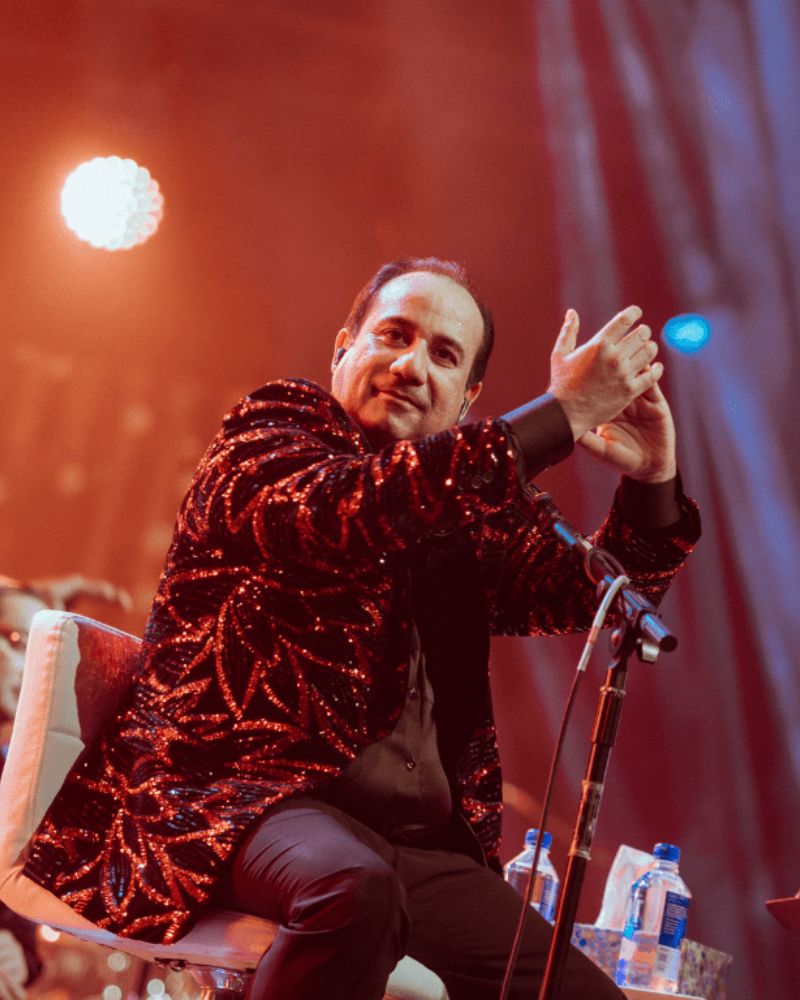
International Recognition
Rahat Fateh Ali Khan’s fame is not limited to South Asia. He has performed at prestigious venues worldwide, including the Royal Albert Hall in London and the Sydney Opera House. His collaborations with international artists, such as Eddie Vedder of Pearl Jam and Peter Gabriel, have further cemented his global reputation.
In 2010, he won the UK Asian Music Award for Best International Act. His rendition of the qawwali “Allah Hoo” and his collaboration on “Mast Qalandar” with Peter Gabriel for the album “Real World” have been particularly well-received internationally.
Awards and Honors
Throughout his career, Rahat Fateh Ali Khan has received numerous awards and honors. Some of the most notable include:
- Lux Style Award for Best Original Soundtrack: He has won this award multiple times for his contributions to Pakistani television dramas.
- IIFA Award for Best Male Playback Singer: He won this award for the song “Teri Ore” from “Singh is Kinng.”
- Filmfare Award for Best Male Playback Singer: He won for the song “Dil To Bachcha Hai Ji” from “Ishqiya.”
- Screen Award for Best Male Playback: He has won this award multiple times, highlighting his dominance in the playback singing category.
In addition to these, Rahat has been honored with the Lifetime Achievement Award at the UK Asian Music Awards, recognizing his contributions to music over the decades.
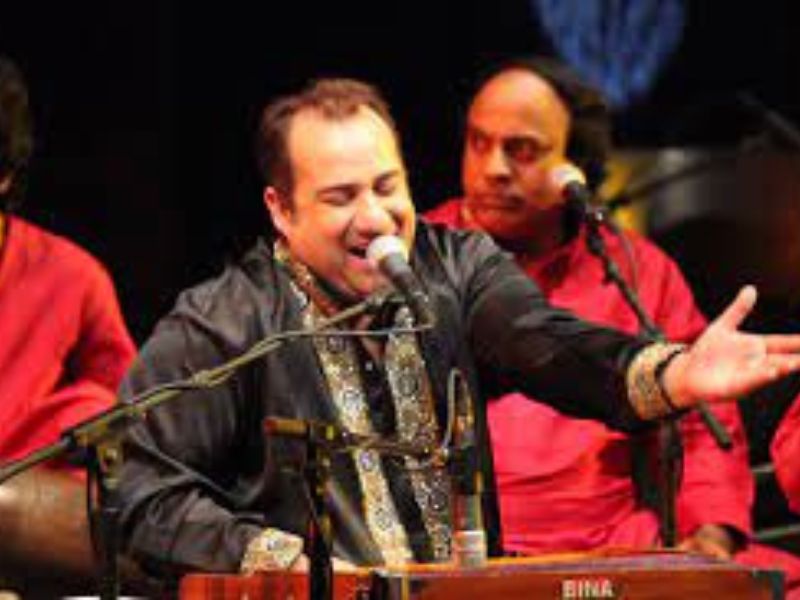
Personal Life
Rahat Fateh Ali Khan is married to Nida Rahat. The couple has a son, Shazmaan Khan, who is also showing an interest in music, potentially continuing the family tradition.
Despite his global fame, Rahat remains deeply rooted in his Sufi heritage. He continues to perform qawwalis and other traditional forms of music, often dedicating his performances to the memory of his uncle, Nusrat Fateh Ali Khan.
In recent years, Rahat has continued to captivate audiences with his powerful voice and emotive performances. He remains a prolific artist, regularly releasing new music and collaborating with other musicians. His participation in Coke Studio Pakistan has been particularly notable, where his performances of songs like “Afreen Afreen” and “Mast Qalandar” have garnered millions of views on YouTube.
Rahat Fateh Ali Khan’s journey from a young boy in Faisalabad to an international music icon is a testament to his immense talent, dedication, and passion for music. He has successfully carried forward the legacy of his illustrious family while also carving out his own unique place in the world of music. His contributions to both traditional and contemporary music will undoubtedly be remembered for generations to come.

